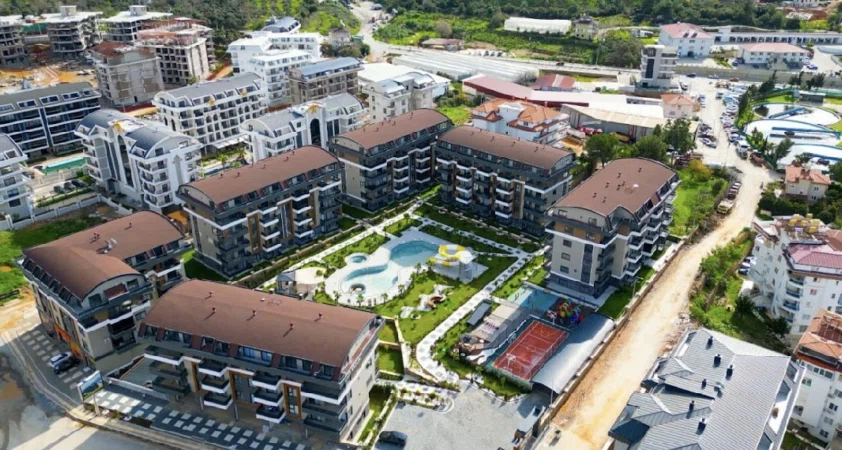Turkish Central Bank Initiates Policy Pivot: Profound Implications for the Real Estate Sector

Following a protracted period characterized by stringent monetary tightening, the Central Bank of the Republic of Turkey (CBRT) has formally announced a pivotal shift in its economic strategy. The CBRT is now set to commence a new cycle of interest rate reductions, diverging from its previous high-rate policy which was meticulously implemented to counteract persistent double-digit inflation. With discernible evidence of disinflation now firmly established, this significant policy adjustment is anticipated to fundamentally reconfigure the financial landscape, offering considerable relief to the real estate sector by mitigating borrowing costs and injecting renewed impetus into investment.
How Will This Policy Shift Re-calibrate Real Estate Investment Dynamics?
The current official policy interest rate stands at 46%, while the annual inflation rate has demonstrated a notable decline to 35%. This narrowing differential serves as a critical indicator of the Central Bank's unwavering commitment to achieving positive real yields. The impending interest rate reductions are not merely technical adjustments; they represent a material decrease in the cost of capital, directly benefiting real estate developers, businesses, and prospective homebuyers. Forecasts indicate that lower interest rates will directly translate into more accessible mortgage financing, thereby stimulating demand across residential property segments. Concurrently, reduced financing costs for construction projects are expected to foster a new wave of supply. This strategic policy pivot is thus poised to unlock substantial investment flows, positioning real estate as an increasingly attractive and attainable asset class within the national economy.
Inflationary Trajectories and Their Long-Term Impact on Property Stability
The CBRT's latest inflation forecasts project a discernible improvement in the economic environment, a trajectory intrinsically linked to the stability and performance of the real estate market. The Bank anticipates that inflation will recede to 24% by the close of 2025, further declining to 12% in 2026. Significantly, the possibility of single-digit inflation by 2027-2028 is now within sight, marking a transformative milestone for Turkey's macroeconomic health. As inflationary pressures abate, the intrinsic value of real estate holdings is expected to stabilize and appreciate more predictably, fostering long-term investor confidence. The CBRT's calculated approach to reducing rates in alignment with disinflation aligns with broader global monetary easing trends, exemplified by major central banks such as the U.S. Federal Reserve and the European Central Bank, which have initiated similar policy cycles. This global convergence enhances Turkey's appeal for international real estate capital.
Navigating Economic Headwinds: Past Challenges and Future Prospects for Real Estate
The Turkish real estate sector, much like the broader national economy, has demonstrated resilience in navigating periods of elevated interest rates. These measures were deemed necessary to stabilize prices amidst geopolitical tensions and externally driven crises. However, the CBRT now confidently asserts that the most severe inflationary pressures have substantially receded. This renewed confidence forms the basis for the cautious yet decisive rate-cutting cycle now underway. This strategic policy adjustment is fundamentally proactive, designed to invigorate domestic investment, alleviate financing constraints on the real sector, and propel a robust economic recovery, with the real estate market poised to assume a central and pivotal role in this national resurgence.
Strategic Outlook for Turkey's Property Market
In summary, Turkey's monetary authorities are adopting a more accommodative policy stance, primarily driven by discernible improvements in domestic economic conditions and the prevailing global trend towards monetary easing. Should inflation continue its projected downward trajectory, the environment will become increasingly conducive to more aggressive reductions in policy rates. This will inevitably result in significantly lower borrowing costs, stimulating a vigorous resurgence in construction activity, accelerating residential property transactions, and attracting substantial foreign direct investment, thereby solidifying Turkey's transition to a path of sustainable, low-inflation growth, and rendering its real estate market a highly compelling proposition for the foreseeable future.






















